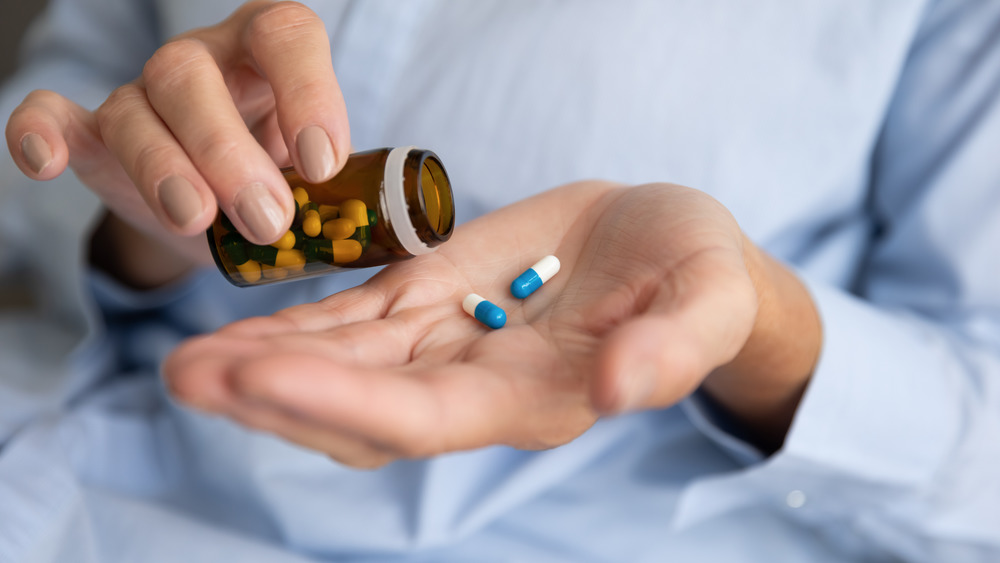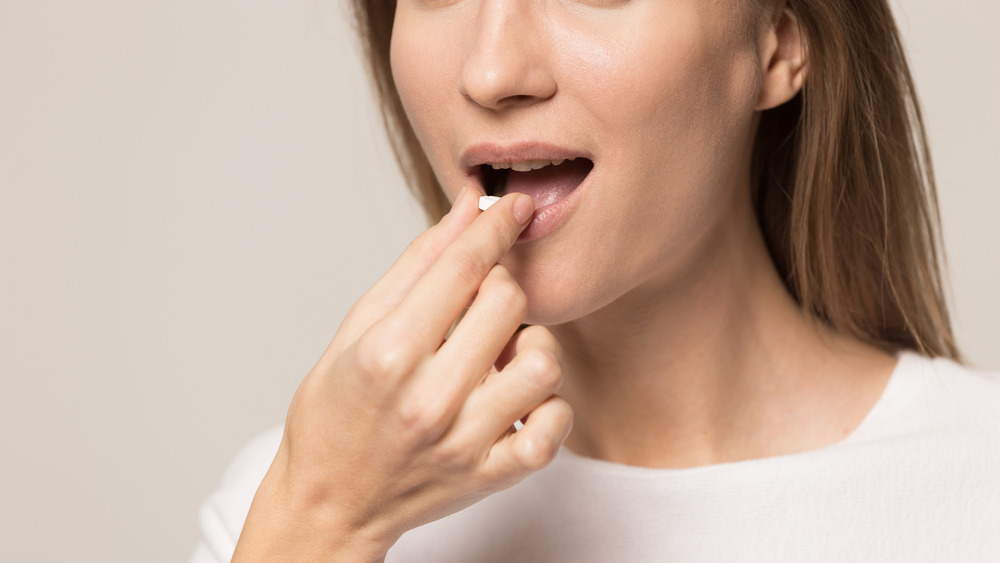What You Should Know Before Taking Inositol Supplements
Anxiety and depression are more widely discussed topics than ever before, but even though spreading awareness and keeping people informed is important, there's also a tendency to downplay these very real mental illnesses online, which makes it harder for sufferers to find support. As Byrdie reports, anxiety disorders are the most common mental health ailment in the US, with a massive 18.1 percent of the population reportedly suffering from them annually.
However, in spite of their prevalence, less than 37 percent of those who are impacted by these conditions get the requisite treatment. This is typically due to shame or embarrassment, or simply being unsure of where to go to get help. There are plenty of options available, including therapy, exercise, meditation, and medication. Finding the right approach really depends on the person, but for those looking to take a supplement to assuage symptoms, Inositol might be a good fit.
Inositol is found naturally in the body
Healthline advises that Inositol is a carbohydrate naturally found in the body that comes in many different forms, all of which have a similar chemical structure to glucose. Inositol is instrumental in many processes, which is why it's been studied for potential health benefits when taken as a supplement. Aside from aiding in blood sugar control by improving insulin sensitivity and reducing the symptoms of depression, Inositol may also alleviate anxiety.
It affects the processes that make neurotransmitters, which relay messages in your brain. One of the most important neurotransmitters is serotonin, which affects behavior and mood. Several studies found that Inositol supplements can reduce panic attacks, as well as assisting in the management of anxiety disorders, however, more research is required to ascertain just how effective they are. There are virtually no side effects, though, so they're at least safe to try.
Inositol could effectively treat anxiety disorders
As Byrdie notes, Inositol is available in either powder or pill form. Generally, you take 12-18 grams daily, beginning with a smaller dose and gradually increasing by one gram at a time to build up a tolerance. It's worth noting it may take up to a month to feel the full effects, so be patient. Additionally, taking too much at once could lead to stomach issues, headaches, and fatigue. Inositol can cause drowsiness regardless, so it's best taken at night time.
For those who have schizophrenia, dementia, ECT-induced memory impairment, ADHD, or autism, however, these supplements are not an effective treatment. In relation to the treatment of bipolar disorder, Inositol shows promising results, but more research is required. As always, if you're considering taking these supplements to combat the effects of an anxiety disorder, it's best to discuss with your doctor first to ensure it's the right treatment for you.


